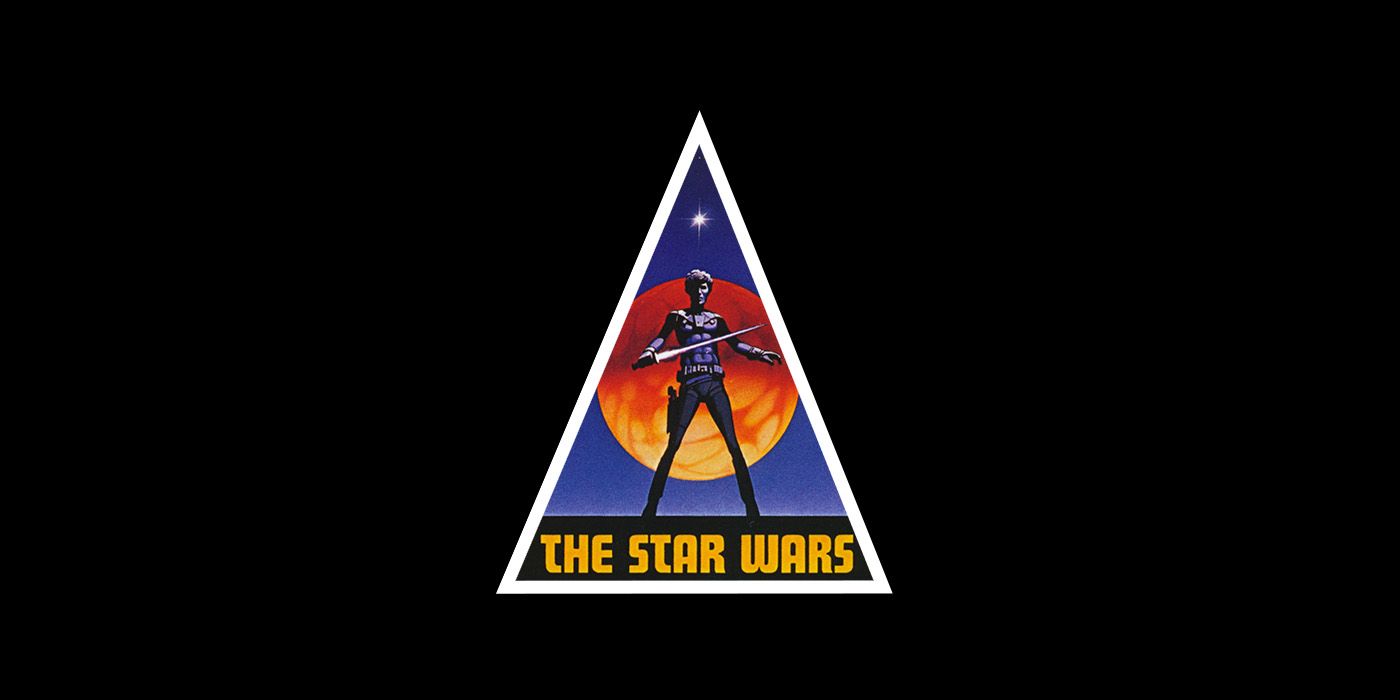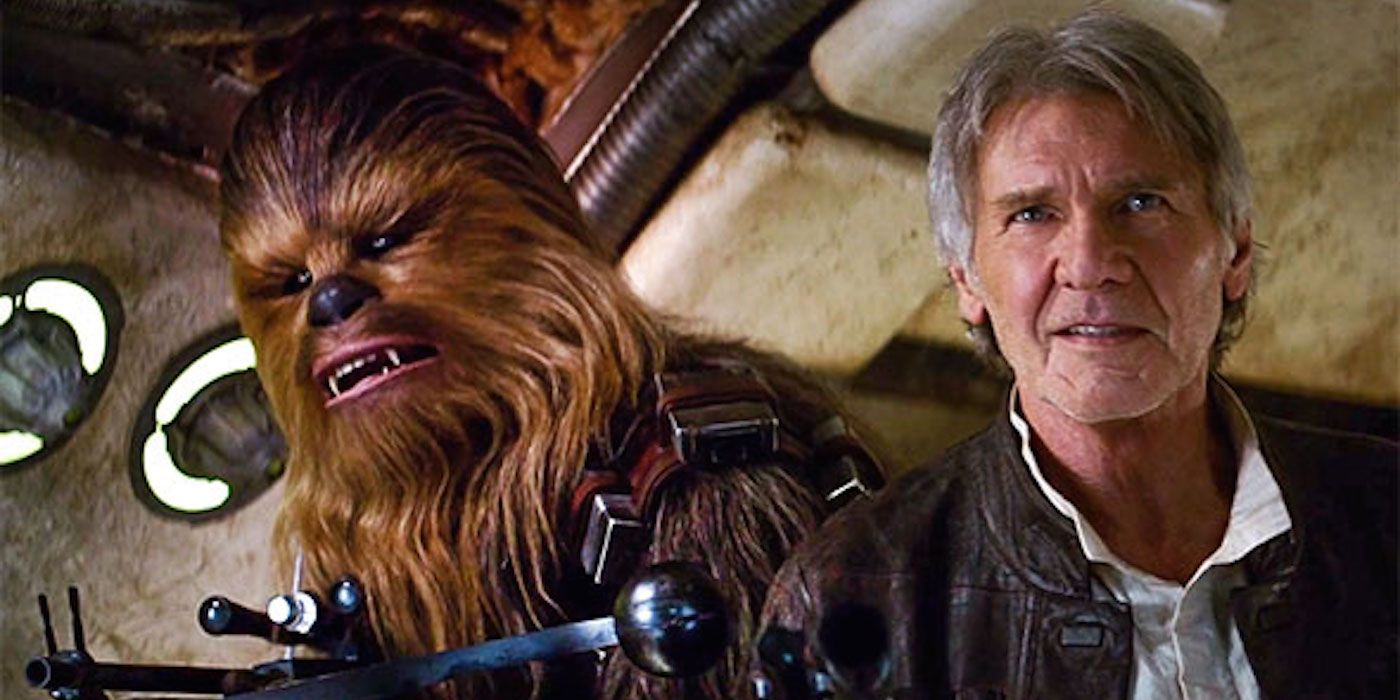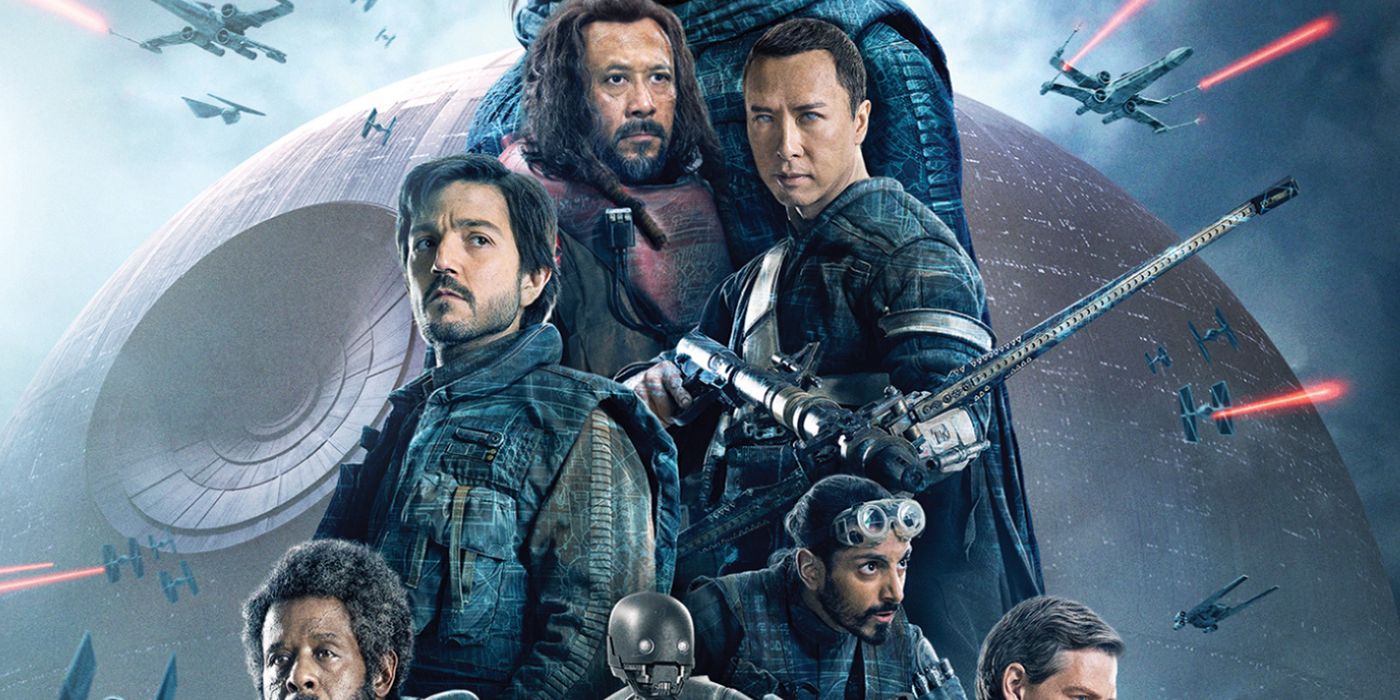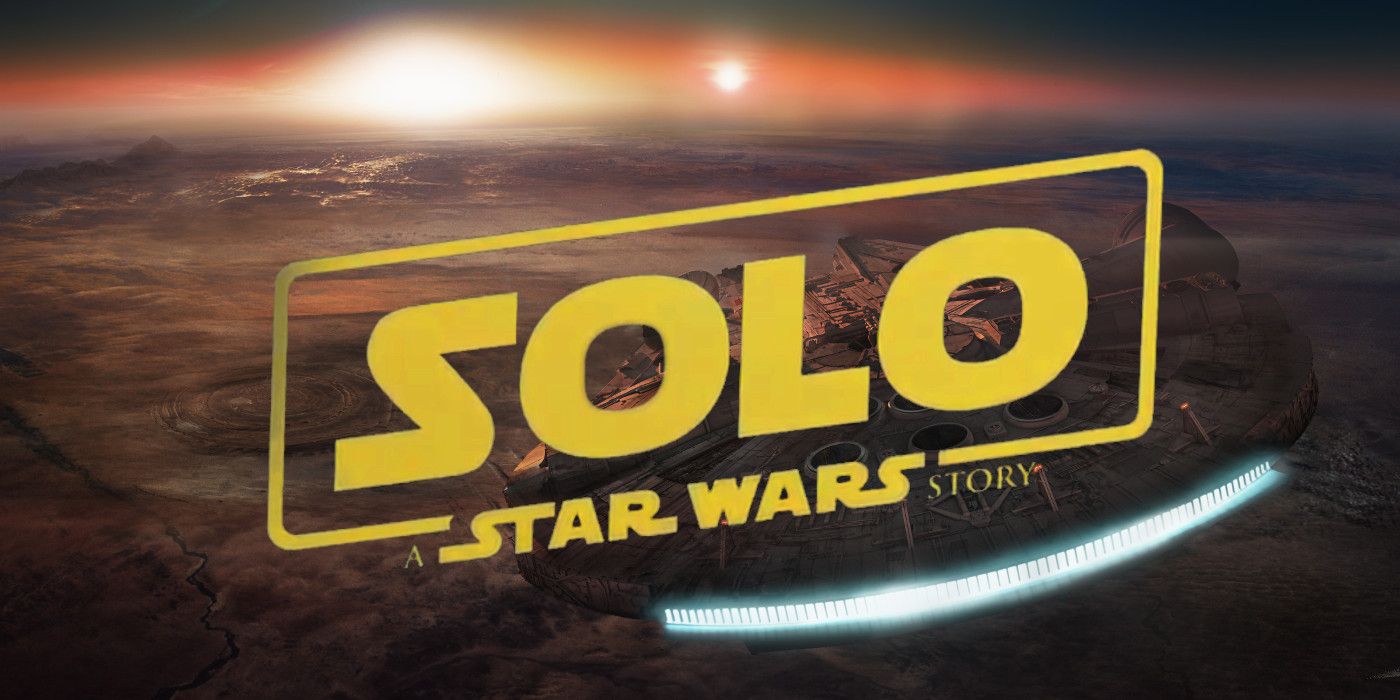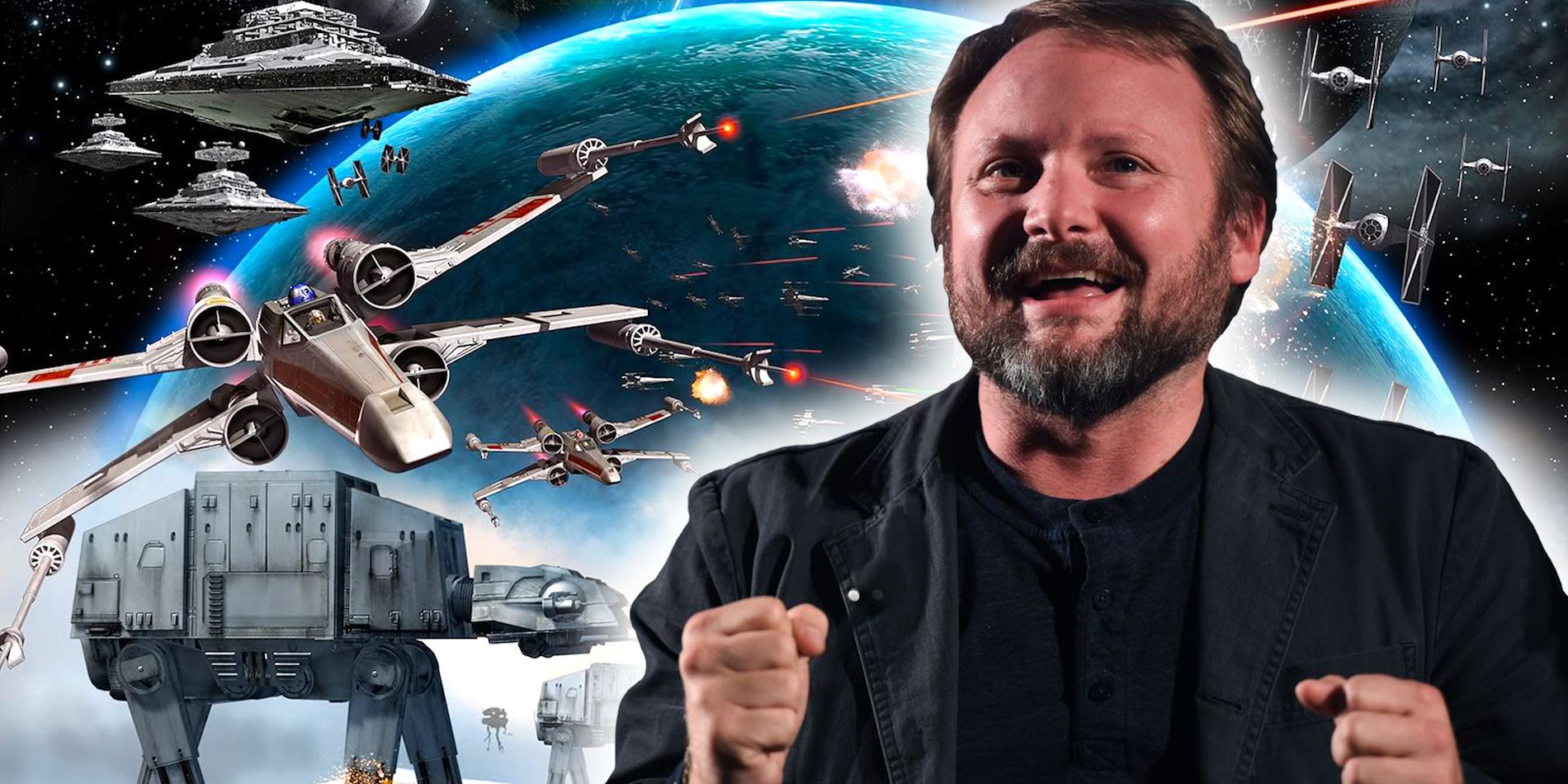Star Wars: The Last Jedi director Rian Johnson is developing an all-new trilogy set in the galaxy far, far away, and it's exactly what the franchise needs at this point in time. Disney famously acquired Lucasfilm back in 2012 and went right to work on a full slate of annual film releases that wouldn't just add to the Skywalker saga, but also flesh out other aspects of the canon. A key selling point of Star Wars' new future was the prospect of spinoff movies that presented an opportunity to expand horizons and add to the lore. However, in the early going, things didn't exactly go that way.
While both Rogue One and Solo introduce new characters and locations to the film series, there's no denying that they were limited with what they could achieve, having to be boxed into a pre-existing continuity and hit certain story beats. They seemingly flew in the face of the creativity and innovation Star Wars was born on, leaning much too heavily on what had come before, rather than pursuing new directions. With the announcement of this new Johnson Trilogy (as we're unofficially calling it), the property is finally going to be liberated from the one thing that's been holding it back. Lucasfilm is learning from their mistakes.
Star Wars and Nostalgia
The Force Awakens and Rogue One collectively brought in more than $3 billion at the worldwide box office, so they obviously struck a chord with audiences. That said, one common criticism of the two is that they were perhaps a bit too nostalgic for their own good. Episode VII aped direct plot points from A New Hope (a cute droid with top secret information, planet-killing weapon) and was seen by some as a rehash of that seminal film. Rogue One arguably took things a step further in the fan service department, shoehorning in cameos from "the cantina guys," revealing the truth behind the Death Star's weakness, and telling us why Luke Skywalker was Red 5 during the Battle of Yavin. Even Darth Vader's famous hallway scene received some pushback in certain circles, who saw it as little more than wish fulfillment for those yearning to see the Dark Lord unleashed.
Related: Star Wars Needs To Replace The Millennium Falcon
Solo, it seems, is going to be more of the same. The spinoff operates as an origin story for one of the franchise's most iconic characters, and plot points unveiled by Disney CEO Bob Iger scream low-hanging fruit. Among the topics Ron Howard's film is expected to cover how Han's lifelong bond with Chewbacca formed and how Solo won the Millennium Falcon from his buddy, Lando Calrissian. Granted, this could be done in an effective way, but on-paper, Solo runs the risk of falling into the same traps as George Lucas' prequels, asking questions that never begged to be answered in the first place. From a cynical point of view, the two entries of the Star Wars Story line read as business-orientated decisions, designed to capitalize on the brand's classic iconography with films that were easy to market to die-hard fans and casual viewers. It made sense for Lucasfilm to play things a little safe, but some were frustrated by their slavish devotion to the ancient religion of the original trilogy.
And though Lucasfilm is only a few years into the great Star Wars renaissance, they may have been subject to the infamous "franchise fatigue" hot takes if they hadn't announced the Johnson Trilogy now. Solo is where some viewers might have started to tire of the story group retreading familiar ground. It will be the sixth film (out of 10) to feature the Falcon in a meaningful capacity. It will mark Chewbacca's seventh appearance in the live-action movies. Just two and a half years after Force Awakens gave us the last of the adventures of Han and Chewie, we're going back in time to see the dynamic duo wreck havoc in their younger years. Again, Solo could turn out to be entertaining, but there are only so many times you can go back to the same well before things grow stale. When Disney bought Lucasfilm, it was a longterm play, so everyone involved behind the scenes was going to have to start looking ahead sooner or later.
The outlier to this nostalgia craze is The Last Jedi, which was written and directed by Johnson. Of course, the eighth episode in the Skywalker saga will have plenty of familiar elements, but it also represents a real push in a fresh direction. From the beginning, the script has been the recipient of high praise, with Adam Driver stating it creates a new set of rules for the franchise. Mark Hamill was infamously shocked by the depiction of Luke, and the cast has been adamant about the surprises that are in store. Episode VIII was the first Star Wars film to have a smooth production, and Johnson said he would helm another installment in a heartbeat, so Lucasfilm would have been foolish to let him slip through their fingers. Mortgaging their future on his vision reads as a smart decision as they look to avoid the problems they've had lately.
Lucasfilm's Growing Pains
In the Disney era, Lucasfilm has released two global blockbusters and mastered the PR game, but anyone paying close attention to their comings and goings would be hard-pressed to say they're a well-oiled machine. One area where the studio has struggled immensely is director choices, which has led to some infamous drama. Rogue One was substantially retooled in extensive reshoots (overseen by Tony Gilroy, not director Gareth Edwards) and saw storylines and character arcs left on the cutting room floor. Kathleen Kennedy fired Phil Lord and Chris Miller from Solo four months into filming, bringing in Ron Howard to reshoot the entire picture, doubling the budget in the process. These are not normal occurrences in Hollywood, so some soul searching had to be done.
Related: Is Star Wars Done With The Skywalkers?
Lucasfilm's goal with the spinoffs was to show Star Wars was larger than the Skywalkers, but they were showing a surprising amount of reluctance to actually run with that idea. Earlier this year, reports from the trades indicated movies centering around Obi-Wan Kenobi, Yoda, and even Jabba the Hutt were being considered, representing something of a creative nadir. But perhaps the issues that plagued Rogue One and Solo inspired Kennedy to take a different approach. Instead of boxing themselves in by trying to align with something that's more sacrosanct than real-world history, starting fresh with a clean slate had infinitely more appeal. Quite frankly, direct prequels are a nut Star Wars never truly cracked, so instead of tripling down on legacy elements that everyone knew, they're blazing new, exciting paths.
From a storytelling perspective, this should be extremely beneficial. The fact that it's a trilogy should help combat the stigma that the anthologies are "Star Wars filler" designed to tide you over until the next main episode. With three films to tell its tale, the Johnson Trilogy is going to be the main event in the next decade, making it easier for both die-hards and casual moviegoers to become invested in its story. One area where many feel The Force Awakens trumps Rogue One is the strength of its characters, and part of that may stem from the knowledge Jyn Erso and her band of Rebels were always going to be one-and-done, never to be heard from again after Scarif. The leads of the Johnson Trilogy are going to be the faces of the franchise post-Rey, and fans will be following them for years to come. Unlike the new faces introduced in Rogue One and Solo (Han never mentioned mentor Beckett in four saga films), Johnson's new characters should be sticking around, creating that important sense of attachment.
What's smart about this is that it has the potential to enhance the whole shared universe concept. Episode IX is set to conclude the sequel trilogy, bringing an end to that particular story. Lucasfilm and Johnson can then move on to their new collaboration, which can be its own self-contained thing that just exists in the same world as the core episodes. Once the Johnson Trilogy is over, the story group can then tell another new story, creating a web of separate narratives that just share the Star Wars name as opposed to making everything part of the original Skywalker continuity. As we've illustrated with the never-ending MCU, adding more blocks to the Jenga tower can cause it to collapse. Even the Star Wars prequels had some questionable gaps of logic, so moving full speed ahead on something wholly new that's not connected in any way is freeing and allows Johnson to do whatever he wants.
Conclusion
It goes without saying that the Johnson Trilogy will help Star Wars grow in more ways than one. Even all of the non-movie canon materials, which range from TV's Rebels to comic books, tie back to the Skywalker saga in some way, fleshing out the Clone Wars, Galactic Civil War, or First Order/Resistance conflict. With Johnson taking us to a place we've never gone to, the possibilities for new stories across multiple mediums are endless. The enthusiastic reaction to this news is a stark contrast from the lukewarm response to the likes of Solo, and that sends a clear message to Lucasfilm moving forward. With an endless galaxy at their disposal, imaginations should run wild. Unlike the Marvel Cinematic Universe, there isn't any source material Star Wars needs to be beholden to.
This may be wishful thinking on our part, but this could also be a route for Lucasfilm to repair its damaged reputation in the eyes of unique directors. Johnson is friends with some high-profile filmmakers (including Edgar Wright), and he could sell some of them on the prospect of working with a blank canvas. It's worth remembering at this point, Johnson is only helming the first entry of this new trilogy, so there are two movies in need of someone behind the camera. With all the leeway here and Johnson's glowing praise of all the creative freedom he had on Last Jedi, someone like a Wright or Taika Waititi could be inclined to sign on and leave their own stamp on the Star Wars legacy. Whatever Johnson has in store, it'll surely be thrilling.

